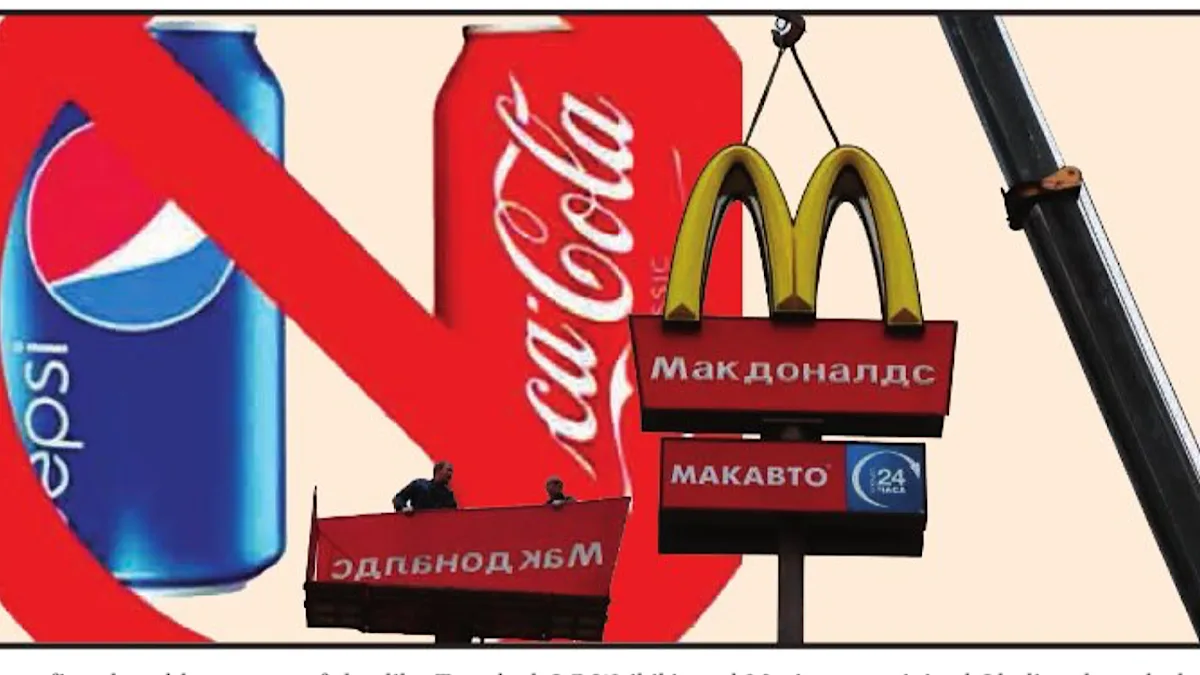When war, trade, and diplomacy dominate headlines, brands can no longer pretend politics don’t affect them. From McDonald’s dramatic exit from Russia and H&M’s backlash in China, global brands today are walking a tightrope — one misstep, and they risk losing entire markets. The question is no longer whether businesses should take a stand, but whether they can survive if they don’t. This article explores the tension between business interests in today’s volatile geopolitical and public scrutiny, and why “brand neutrality” may be an outdated luxury.
When Russia invaded Ukraine, McDonald’s didn’t just stay quiet and continue business. It shut down 853 restaurants. That’s not a small decision for any global company, but that’s what they did. Of course, Russia replaced it quickly with “Tasty, and That’s It,” But McDonald’s made a calculated move – signalling alignment with Western markets and possibly distancing itself from past leadership scandals – and people noticed. But I’m not saying every brand should always take a drastic step just to send a message. Case in point: H&M – They tried to take a stand on the human rights issues in Xinjiang, saying they wouldn’t use that cotton; it backfired – badly.
Advertisement
The brand was swiftly removed from major platforms, faced widespread boycotts and people burned clothes. The brand disappeared from one of the biggest markets in the world and even years later, it hasn’t fully recovered its market presence. It’s hard to say whether it was the right call in business terms, but I can see the intention behind it. They took a stance, and there were consequences. Execution mattered – the silence that followed sent mixed signals and undercut their initial message. It’s not easy to make these decisions when profits are on the line, they rarely fall into clean categories of right or wrong – only risk vs. return. In 2024 and 2025, both Coca-Cola and Pepsi found themselves at the centre of boycotts across several Muslim-majority countries.
The brands were perceived as being indirectly aligned with political stances during the Gaza conflict. Whether or not they were actively involved didn’t matter. It had a real impact. The perception was enough to spark boycotts and the numbers proved it. Their market share in places like Pakistan, took a noticeable hit, while local alternatives surged. To me, this showed how quickly perception can shift — and how hard it is to stay neutral. Coke and Pepsi didn’t say much publicly, which might have been an attempt to avoid controversy. But strategic silence carries its own risks. In a hyper-connected world, inaction is often read as intent.
This isn’t about picking sides — it’s about being prepared to communicate clearly and transparently when people are paying attention. I saw first-hand how powerful consumer sentiment can be when politics get personal. When Turkey backed Pakistan during the Kashmir strikes, it wasn’t just the government reacting — it was all of us. What stood out to me was how widespread the response became. The All India Consumer Products Distributors Federation (AICPDF), which supplies 13 million kirana stores, called for a total and indefinite boycott of Turkish goods — affecting chocolates, wafers, jams, biscuits, and even skincare products worth Rs 2,000 crore.
That’s no small dent. Even fashion sites that I shop often from – like Flipkart-owned Myntra removed popular Turkish brands like Trendyol, LC Waikiki, and Mavi. Seeing these brands vanish overnight in the name of “national interest,” turned sentiment into commercial strategy. Reliance’s AJIO did the same, quietly removing or showing these brands as “out of stock,” citing “national sentiment” . There was no official government order, just the power of collective emotion. This wasn’t driven by brand actions — but by association. The political became personal, and branding became diplomatic. And that’s exactly the point: in today’s world, consumers move fast and brands need to keep up. In an age where every purchase is a statement and every silence is scrutinized, I believe brands that take a stand are making a strategic decision, not a moral one.
Purpose-driven branding is a tool for differentiation and growth in a saturated market. Choosing silence is not neutral – it’s a risk that can lead to loss of relevance and competitive edge. Being purposeful isn’t about reaction or emotion; it’s about being informed, and intentional positioning aligned with business goals. Where every silence is a signal, standing for something is the only way to stand out.
(The writer is a research and marketing enthusiast from Mumbai, building a path in international business with a global lens and local roots.)
